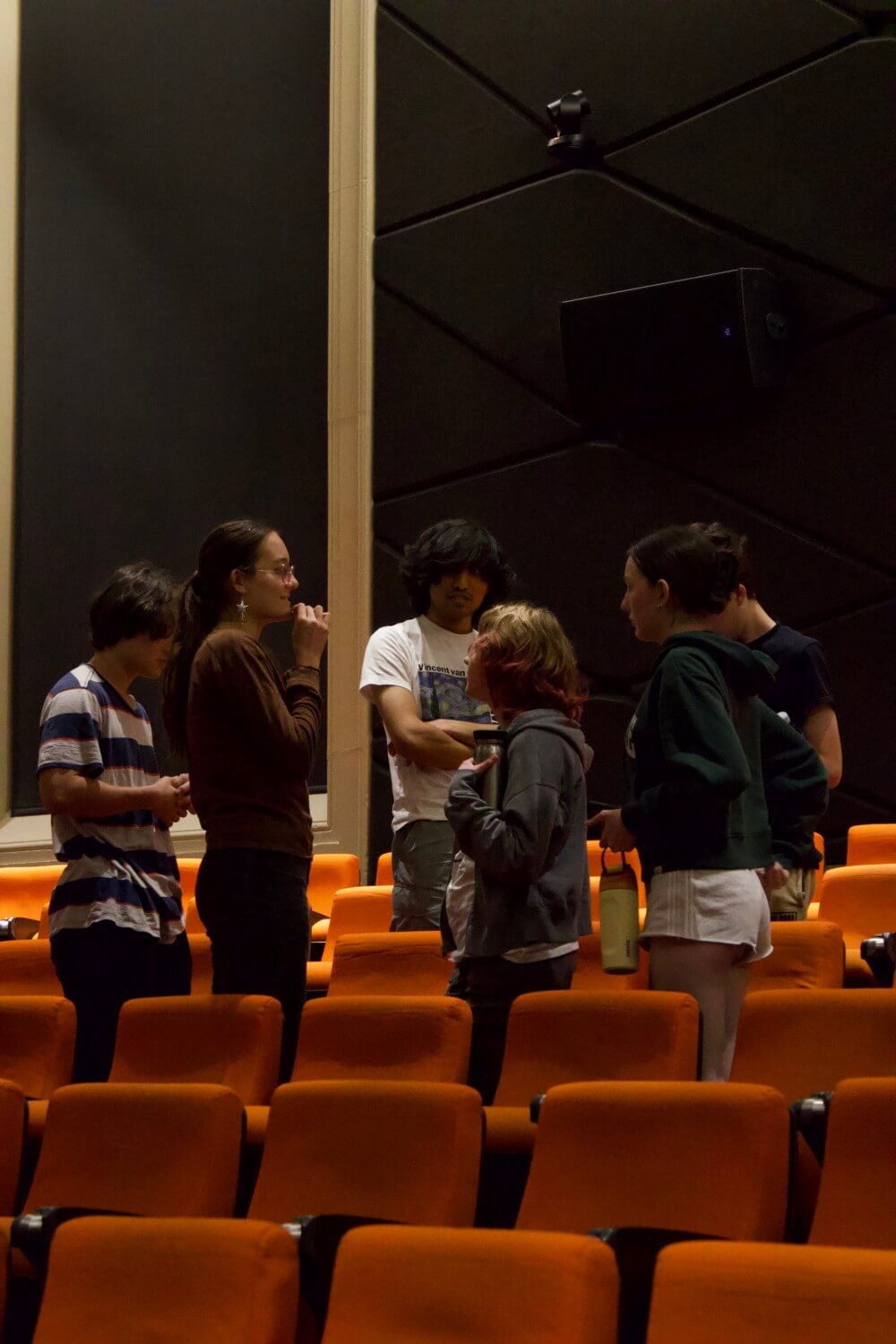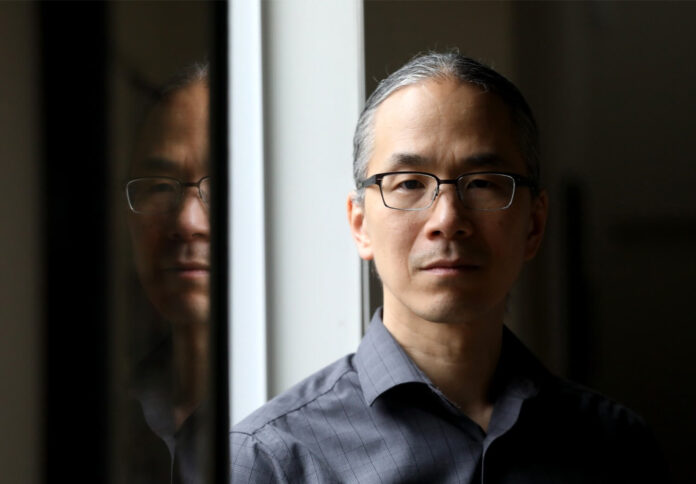Award-winning science fiction author Ted Chiang gave a talk on generative AI and art to Occidental students, faculty and community members Sept. 23. In anticipation of the talk, Associate Professor of Black Studies Yumi Pak presented a screening of “Arrival” Sept. 18 in Choi Auditorium.
Pak said she came up with the idea to bring Chiang to the college alongside Associate Professor of Cognitive Science and Computer Science, Justin Li, and Associate Professor of English, Ross Lerner.
“I taught ‘Story of Your Life‘ and ‘Arrival‘ in my first-year seminar last year, and students were interested in the short story and the movie as well,” Pak said. “I was speaking with Professor Ross Lerner and Professor Justin Li, who I work with in other capacities, and we just went, ‘What if we try and bring Ted Chiang to campus?’”
According to Li, the Computer Science and English Departments collaborated with a number of other departments in order to bring Chiang onto campus, including Art & Art History, Media Arts & Culture (MAC), Asian Studies and Philosophy.
“A lot of the work was around getting departments to chip in for funding to bring him, and then [Chiang] was the one [who] suggested the topic of AI and creativity,” Li said.
According to Lerner, he became acquainted with Chiang’s work through the award-winning film “Arrival”, which then led him to “Story of Your Life” — the short story it was based on — and other works of Chiang.
“He’s just the kind of science fiction writer who has such a subtle and sophisticated approach to how he forms his stories, and I really admired that,” Lerner said. “I just kept reading more from there and I started encountering some of his nonfiction writing, particularly about AI in places like the New Yorker, and realized he had this whole other kind of writing identity.”
Lerner said he appreciates the deep thought and perspectives that Chiang brings to the conversation about AI.
“I appreciate him because he is a really important critical voice in these discussions, but he’s also not dogmatic or hysterical,” Lerner said. “He is fully aware of [all of the] the critiques, but he is also interested in technology and language, so he’s not going to be quick to dismiss the possibilities that there are in new kinds of technologies.”
Li said he is anticipating the perspective that Chiang will bring to campus.
“In general, almost everyone on campus is already thinking about AI, if nothing else, about how it’s impacting job prospects,” Li said. “It is interesting to hear from someone who works in a creative field, talking not just to share their thoughts on AI, but also their own relationship [with] AI.”
Pak said she doesn’t allow AI usage in her classes, but she’s interested in exploring it as a potential tool.
“From the faculty perspective, I would say all of us [are] really invested in students’ education,” Pak said. “So given all of the conversations that are happening around AI, I think as educators we want to be thinking really carefully about what are the best practices for our students; just because something is new doesn’t mean it’s immediately bad.”
Li said he’s pivoted to technical interviews to get around AI usage in his classroom and to get students to think about the process.
“I think larger [AI] models have really forced educators to think hard about what it means for someone to learn something,” Li said. “It used to be that essays [were] a good approximation of what the students [had] learned. Now that’s no longer the case, [we have] to adapt to actually ensure that students are learning what we want them to.”

The screening of “Arrival” began just after 7:00 p.m., and the audience included students and outside guests. In attendance were MAC majors Zuriyah Smith (senior) and Isa Ramos (senior). According to Smith, one of her professors assigned “Story of Your Life.”
“[My professor] recommended that we come to the screening, but I’m definitely going to go see [his] talk,” Smith said.
Ramos said it was her second time watching the film.
“This time around, I think that I was less concerned with how they learned [the alien language],” Ramos said. “It all kind of drops away and you realize that it is such a human story, even though it’s about aliens.”
Pak said she hopes Chiang’s talk affirms and challenges students’ thoughts on AI.
“It’s really important that Oxy doesn’t exist in a bubble,” Pak said. “We are part of a larger world, we’re part of larger connections, we’re part of larger conversations. I can only imagine that he’s only going to bring a lot of thoughtfulness to the conversations that I’m sure are already happening in various places on campus.”
Lerner said he hopes Chiang’s talk can inspire further conversations about AI at Occidental.
“Discussions of AI can feel sort of abstract and unmoored,” Lerner said. “I want an argument in front of me that we can point to and say, ‘Do we agree with this, do we disagree with this? Are there ways that we want to adapt this, or resist it in interesting ways?’ I find that useful and generative for conversation.”
This article was written and edited prior to the Sep. 23 event.
Contact Wura Ogunnaike at ogunnaike@oxy.edu
![]()































